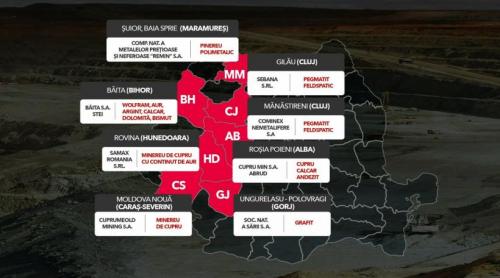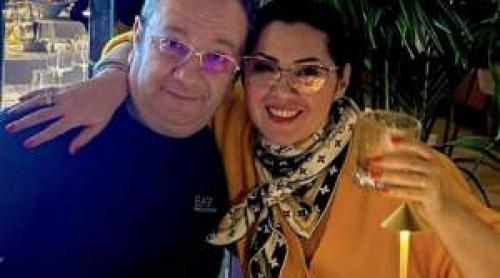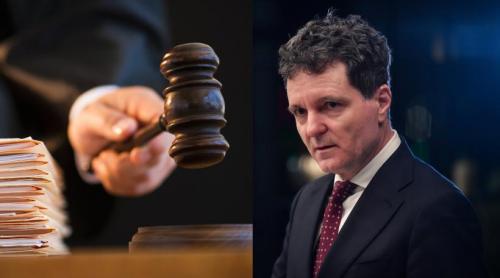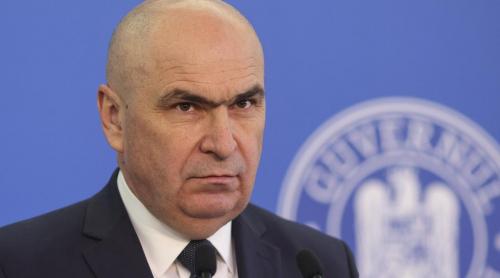
Reports piled up from Japan Tobacco International(JTI) investigators around the globe. Mobsters were doing business withthe firm’s Russian distributorship while shipping tons of illegal cigarettes into Europe. Workers felt endangered. Accused smugglers and criminals ran some of its Middle East partnerships.
And wheninvestigators received information that13 JTI employees or distributors may have been working directly with smugglers, a senior executive at JTI blocked an investigation, according to company e-mails and internal memos.
JTIhad some problems.
The company’s investigative team – experienced hands culled from the CIA, British police, U.S. Special Forces and elsewhere –chronicled and fought those problems for years. They went undercover, shut down smuggling routes and worked with European police to interceptshipments worth millions of Euro. The deeper they dug, the more evidence they say they uncovered against JTI’s employees and its distributors.
And that, according to thousands of pages of company records, e-mails and secret recordings obtained by the Organized Crime and Corruption Reporting Project (OCCRP), along with interviews of a half-dozen past employees, created another problem for the world's third largest tobacco company.
The investigatorshad become too successful, they say.
JTI’s own investigators sayJTI and its parent Japan Tobacco did almost nothing when faced with reports their distributors smuggled tobacco through Russia, Moldova, the Balkans, Afghanistan and the Middle East. The apparently rampant smuggling occurred despite a 2007 agreement with the European Union mandating that JTI proactively investigate all claims of smuggling. The agreement prompted a public pledge by the company to adopt a zero-tolerance policy on illicit shipments.Those investigators say they were let go because of their concerns.
This year, as Syrian president Bashar Al-Assad killedhis own people and faced worldwide sanctions, JTI’s Middle East business partner IBCS poured cigarettes into duty free shops, according to invoices obtained by OCCRP.
The profits went to a company whose owner, Rami Makhlouf, according to a European Union sanctions order on May 23, "provides funding to the regime allowing violence against demonstrators.' Four days after the sanctions took effect, JTI’s partner and sole Middle East distributor shipped 9,000 cases – 90 million individual cigarettes -- to Syria Duty Free.
In the same month, Syria Duty Free claimed to transfer ownership from the Mahklouf family although OCCRP could not verify this. However, a US Department of Treasury notice two months later says "the U.S. Government has reason to believe that Rami Makhluf (sic) is disassociating himself (in name only) from his businesses and looking to safely store his wealth outside of Syria.'
Simon Evans, a spokesman for rival Imperial Tobacco, said his company stopped selling to Syria Duty Free the instant sanctions took effect and hasn't resumed.
"We do have some questions about the sale by Mr. Makhlouf and whether it is valid, but even if it is valid, we and the entire industry are required to do full and complete vetting on any new distributors. Obviously that can't happen in a few days or months, so we can't resume sales until this is sorted out,'' Evans said.
Evans also said Imperial has stopped selling to the Syrian government-owned General Organization of Tobacco because of questions about its banking transactions, even though it is not on the sanctions list. JTI shipped more than 84,000 cases of cigarettes to GOT on May 27,including 20,000 cases free of charge. The bill totaled about $15 million, according to a JTI invoice.
JTI e-mails detail how widespread the smuggling had become across several regions. JTI Investigators caught an Israeli distributor smuggling large quantities of cigarettes into Iraq and Belgium, but investigators say the company took no action. Contractors working for JTI paid officials in Iraq, Kurdistan and Iran to get information on smuggling routes, according to the company’s internal reports on Iraq, and interviews with contractors.
JTI is the international arm of cigarette giant Japan Tobacco, which, in turn is owned more than 50 percent by the Japanese government. JTI reported $25billion in sales in their last fiscal year on brands including Winston, Camel and Benson &Hedges, according to its annual earnings report.At a shareholder meeting in February, President and CEO Pierre De Labouchere lamented a difficult financial environment but lauded the strength of its Russian and Middle East operations during 2010.
Those two markets are the hub of smuggling by JTI distributors, according to e-mails, investigative notes, and internal documents obtained by OCCRP.The internal JTI records and related materials were provided to OCCRP by sources close to the company. Six former employees confirmed the authenticity of the documents.
Executives at JTI headquarters in Geneva, Switzerland, did not respond to specific questions, but did issue a written statement blaming a "former employee’’ for spreading false information."We will decline your invitation (to comment). Our company does not wish to comment on the unfounded allegations raised in the various e-mails you sent us,' Guy Cote, a media relations vice president, wrote in an e-mail.
Deborah Arnott, chief executive of Action on Smoking and Health (ASH) in London, said the revelations against JTI prove that the tobacco industry hasn’t abandoned its old practices.
"JTI, Philip Morris International, BAT and Imperial, have signed legally binding agreements with the EU committing to preventing smuggling of their products anywhere in the world,' she stated. "If subsequently JTI has carried on aiding and abetting smuggling, then it’s clear that a regional agreement like that negotiated by the EU is insufficient.When you have smuggling, you undermine public health, you invite crime and you rob tax payers of millions of pounds of revenue every year.'
Blocked Investigations
In 2009 and 2010 as JTIinvestigators uncovered what they called substantial evidence of illegal trade, managers repeatedly interfered with efforts to stop the trafficking. Mark Mulvey, a senior vice president, directly blocked an investigation into the Audeh Group, its Middle East distributor, according to company e-mails, and internal memorandums.
Kevin Tomlinson, the general manager in Russia, said that he wasn’t concerned about an increase in cigarette seizures at Baltic borders because profits outstripped potential EU-imposed fines for not stopping the smuggling, an email from the compliance team reported. Tomlinson’s comment was also secretly recorded by the compliance team.
Tensions between company executives escalated. David Reynolds, the former vice president of brand integrity tasked with stopping smuggling, clashed heatedly with bosses who he said wanted to slow down investigations that could hurt their profitable partnerships, JTI internal correspondenceshow.
In April 2010, Reynolds wrote a blistering e-mail to Ryuichi Shimomura, senior vice president and chief legal officer for the parent company, Japan Tobacco. In it, he argued that not only were distributors smuggling its product, but that JTI executives knew about the problem and did nothing. He argued that even informationon investigations was being leaked to smugglers.
"Shipments to unauthorized buyers have reached a massive scale exposing the company to fines potentially of around €30 million,' Reynolds wrote. "We have repeatedly reported our findings to JTI management ... but have yet to elicit any concerted effort to halt these diversions.
"In recent months members of my team have been directed not to investigate several instances of smuggling related to specific JTI distributors ... and the possible involvement of JTI employees with knownsmugglers,' Reynolds wrote on Friday,April 10, 2010.
On Monday, April 13, Reynolds was fired.
The company also removed his top assistant, Craig Douglas, that same day. Over the next several months, JTI phased out nearly a dozen contractors who knew about the smuggling and worked closely with Reynolds and his unit. By July of this year, nearly all of Reynolds’ team had been terminated.
"What happened was that Dave (Reynolds)'s group had figured the whole thing out, and they were going after various people,' said Cary Hendricks, a computer intelligence specialist who spent six years contracting at JTI. "Once they had gathered enough proof, they called in the cavalry (notifying senior executives). Then just like that, Dave and Craig were fired – a totally unexpected turn of events.'
"At that point, the entire culture of JTI investigations changed. You had this extremely professional, experienced team working together and sharing a lot of information,' said Hendricks. "There was a buzz in the office, and they were doing great work. And they were replaced by what appeared to be a bunch of office workers who would show up, sit at their computers and do nothing as far as real investigations. It was sad to see.'
They were replaced in part by former employees of the Gallaher Group, which JTI bought in 2007. Gallaher, a British company, was implicated repeatedly in smuggling operations and helped smugglers evade more than $1.5 billion in customs tax in Great Britain in the early 2000s, according to a lengthy UKcourt case.
"You have to ask yourself how serious they are when they bring in people from Gallaher to takeover,'said a former employee who had knowledge of both companies. "The culture in Gallaher was very much, ‘Let’s not get caught, but if we do get caught, be prepared to defend ourselves.’ They didn’t take steps to stop smuggling, just to insulatethemselves when it came out.'
Destroying Documents
Tobacco is the world’s most smuggled legal product, in large part because profits are huge and penalties weak. Smugglers ship containers of tobacco from areas with low taxes such as Russia and Ukraine, or from duty free spots in Dubai and Panama, to high-tax countries in Western Europe and North America. A single container of cigarettes can bring a $1 million profit.
Unlike counterfeiting, smuggling actually benefits tobacco makers. High taxes sharply curtail smoking, studies have shown, so smuggled goods keep them affordable, creating new consumers and sustaining old ones. Smuggling cost government budgets throughout Europe about $14 billion per year in tax revenues, according to a June, 2011 report by the European Commission.
Since the mid-1990s, major cigarette companies have repeatedly been implicated in working with criminal groups to smuggle cigarettes, feeding billion-dollar black markets in contraband smokes. In the past eight years, tobacco makers have paid at least $5 billion in fines and signed agreements to stop participating in the illicit trade. JTI signed a compact with the European Commission in 2007 obliging it to crack down on smuggling and put in place what it called a "zero tolerance policy,' toward illicit shipments.
But evidence from JTI records suggests the company has been less than compliant with the ECagreement. In March, 2010, a private investigator in Belgrade compiled a computer spreadsheet from law enforcement sources listing the names and phone numbers of businesses and individualsworldwide who had shown up in the records of a large-scale smuggling operation conducted by European police agencies. It included 13 JTI employees and distributors.
The Serbian listraised troubling questions. First, the compliance team wanted to know if the investigator, on contract with JTI, bribed law enforcement officials for the information, or was it passed on as a tip to be investigated. Once they decidedthe document came legally, they would investigate the 13 named employees and contractors, according to company e-mails.
That never happened. Nigel Espin, the director of corporate security who came over from Gallaher, expressed concern aboutpossessing proprietary police informationand in a March 10, 2010 e-mail ordered the document returned to the contractor and the investigation halted. He also ordered the document listing the employees and contractors deleted from all records and the JTI computer system. The next day, Chief of Compliance Jean-Luc Perreardconfirmed the order to end the investigation.
Michael Padilla, a JTI contractor who ran undercover operations in Iraq and around the Middle East, said the company was obsessed with gaining market share.
"At first I had a honeymoon phase and was free to go after smugglers in certain areas, but soon it became very apparent that they had relationships with some of the smugglers I was going after,’’ Padilla said. "JTI was trying to protect their market share.Market share, and controlling Iran and the Middle East, was the number one priority for them.’’
Similar conflicts took place at JTI’s offices around the world. In Russia, JTI investigators reported that alleged mobsters had financial stakes in some of JTI’s largest Russian distributorships, according to company e-mails and auditing reports.
JTI investigators and quality control officers in Russia and the Baltics detailed massive smuggling by distributors, particularly of its St. George Brand. But no action was taken, according to internal memos filed by investigators in Russia and by Reynolds, the former brand integrity chief.
Zero Tolerance?
Helping fuel Japan Tobacco‘s growth over the past decade was its purchase of two companies long accused of smuggling, Gallaherand RJR Reynolds.
The governments of Canada and Ecuador sued RJR in the 1999under U.S. anti-racketeering laws, claiming that the company actively smuggled. The European Commission filed a separate suit, accusing high level RJR executives of knowingly accepting criminal proceeds and laundering moneywith drug cartels in South America, working with terrorists in Northern Iraq and of breaking trade embargos to ship cigarettes to Iraqi dictator Saddam Hussein’s government.U.S. judges dismissed all lawsuits, saying they didn’t have jurisdiction over foreign tax matters.
But between 2003 and 2007, Canada’s Royal Mounted Police and revenue collectors filed fraud charges against JTI-McDonald (formerly RJR-McDonald, the company’s Canadian division)and some of its executives for evading more than $1.36 billion of taxes in 2003 alone.
After a series of court judgments – JTI actually filed for court protection against creditors in 2004 after Canada won a $1 billion award – RJR and JTI-MacDonald agreed to pay about $475 million in 2010.
Gallaher was equally notorious. In 2005, Gallaher fired a distributor it accused of smuggling tobacco. The distributor filed a lawsuit, saying Gallaher systematically engaged in smuggling. Gallaher won its lawsuit, but testimony and a judge’s final order dismissing the lawsuit harshly rebuked Gallaher.
In testimony for the civil lawsuit, a former director of Gallaher, Norman Jack, testified the company routinely enabled smuggling and adopted a culture of "willful blindness'.
Against that backdrop JTIadopted what it called a zero tolerance policy on smuggling in 2007, the same year it acquired Gallaher. It also entered into a binding agreement with the European Union calling for it to spend $400 million on anti-smuggling measures over the next 15 years, and implemented steep fines for violations. Under the terms of the pact the company agreed train its employees, and enforce a broad strategy to crack down on illicit shipments.
JTI Chief Executive Officer Thomas McCoy and Paul Bourassa, a senior vice president charged with regulatory and compliance issues, outlined the procedures in a memo to employees on Aug. 16, 2007. Both men had been senior executives at RJR when it was accused of conspiring with smugglers.
"In light of the recent acquisition of the Gallaher group, steps were rapidly taken to ensure that certain practices that could potentially run afoul of JTI’s Code of Conduct were addressed,'the memo said. "JTI’s is committed ….to act swiftly and decisively in stopping actual or potential illegal sales of its product will be acted upon.'
Despite the announcement, incidents of wrongdoing by JTI’s distributors were reported almost monthly during 2009-10, according to company records, but former employees said no action was taken in the most profitable areas. The records show that investigators suspected tens of millions of cigarettes were being diverted to smuggling operations in Russia and the Middle East and elsewhere, often with the help of JTI’s own distributors.
In Montenegro, Rokšped served as JTI’s distributor for the Montenegro, and remains so today, despite a 2007 arrest and a recent conviction for cigarette smugglingof Anton Stanaj, a memberof the powerful family that runs Rokšped.
Dubbed operation "Memphis'--after a pre-JTI Gallaher brand--the Balkan police operation tracked shipments of cigarettes from China, Dubai and other countries to Montenegro and on to the EU throughRokšped and other companies. According to the indictment, Stanaj used Rokšpedas the smuggling base of operations.
Stanajwas convicted in May this year in Belgrade and sentenced to six-and-a-halfyears in prison. Rokšpedis still JTI’s partner in Montenegro according to the firm’s website, and Stanaj is appealing his conviction.
Representatives of Rokšped and the Stanaj family did not respond to six telephone messages and five e-mails from OCCRP.
JTI also continued, and in fact expanded its relationship, with another alleged smuggler, IBCS Trading. In 2002, the European Union filed a lawsuit accusing IBCS of being a "co-conspirator' with RJR Reynolds in smuggling operations. A U.S. judge tossed out the lawsuit, citing a 100-year old law barring U.S. courts from hearing revenue disputes of other governments.
In 2001, JTI and IssaAudeh, owner of IBCS, went into business together to form JT International in Jordan, according to the Audeh-Group website.
JTI investigators in the Middle East and Asia documented what they called widespread smuggling by IBCS to Iraq, Iran Cyprus and elsewhere during 2009-2010.
IBCS did not respond to four telephone calls from OCCRP. An e-mail sent through the company’s website– at the request of an IBCS official – received no response.
Hacked Computers
At the center of the investigations was David Reynolds, who ran JTI’s Asian-Pacific office of Brand Integrity for four years before being promoted to oversee global operationsat the end of2008.
A former analyst for the U.S. Central Intelligence Agency, Reynolds is brusque and demanding, according to several former JTI employees. He saw things in terms of black and white, good and bad, and clashed with executives who were interested only in superficial investigations, they said.
He quickly assembled a team of investigators, some of whom he had worked with before, others he knew only by reputation. By early 2010, the team was running an extensive undercover operation in Iraq and Kurdistan, and had broadly expanded the company’s investigative capabilities.
As the investigators compiled information on Audeh Group, ICBS, and others, the staff also uncovered evidence that its computers were being hacked. Cary Hendricks, a computer security specialist who spent six years as a JTI contractor, found a unique sort of "Trojan horse' had infected the team’s computers and allowed hackers to see what each operative was writing, according to company e-mails.
Hendricks traced the hacking to an empty warehouse in Mexico and eventually to a Canadian company, another JTI contractor whose staff includes former members of the CIA and French intelligence, according to company e-mails and memoranda. Invoices obtained by OCCRP show that JTI paid $300,000to the Canadian company.
According to a November 2009 memo, Senior Vice President Mark Mulvey admitted ordering some of the hacking. Mulvey also ordered another company executive, Willem Van Aldrichem, to shut down all investigations of Audeh and IBCS, according to a secretly tape recorded conversation between JTI employees on Jan. 10, 2010.
By the spring of 2010, relations between the investigative team and its superiors had soured to the point where only one side would survive, according to interviews with several people involved in the investigations. On April 10, Reynolds made his pitch in a letter to Ryuichi Shimomura, the chief legal officer of the parent company.
"… JTI management has not lived up to the ‘zero-tolerance policy’ … and, in those cases that touch on smuggling into or via the European Union, has specifically and repeatedly violated (its obligations under the European Commission agreement of 2007).' Reynolds wrote. "In a few cases sensitive information from (brand integrity) investigations has even been passed back to the smugglers themselves by unknown persons in the company.'
Reynolds asked for support. Instead, he was gone. Other contractors were fired or phased out, and many accepted large settlement payments and signed confidentiality agreements.
Following his dismissal, Reynolds went to work at FBI headquarters in Washington, D.C., where he is a senior analyst on organized crime.
In an e-mail to OCCRP, FBI press officer Amy J. Thoreson said the agency would not allow Reynolds to comment for the story.
Several other fired investigators were quickly snapped up by executives at rival companies. One senior investigator ousted with Reynoldssaid he turned down a JTI severance package worth $100,000 because it meant signing a non-disclosure agreement. "I have to look at myself in the mirror,' he explained.
He asked to remain anonymous because he is now working for a rival company.
"I don’t think they knew what they were getting into when they hired Dave,'the investigator said. "For years they had people who were content to collect their money and not do anything. That’s how the game worked.'
"And suddenly we come in and start doing real investigations and uncovering a lot of smuggling,' he said. "They didn’t like what we were doing, and we didn’t like what they were doing. It was great for a few months, but it couldn’t last. They just didn’t want us to do our jobs.'
Reported and written by John Holland, BojanaJovanovic and Stevan Dojcinovic for OCCRP.
Citește pe Antena3.ro


















